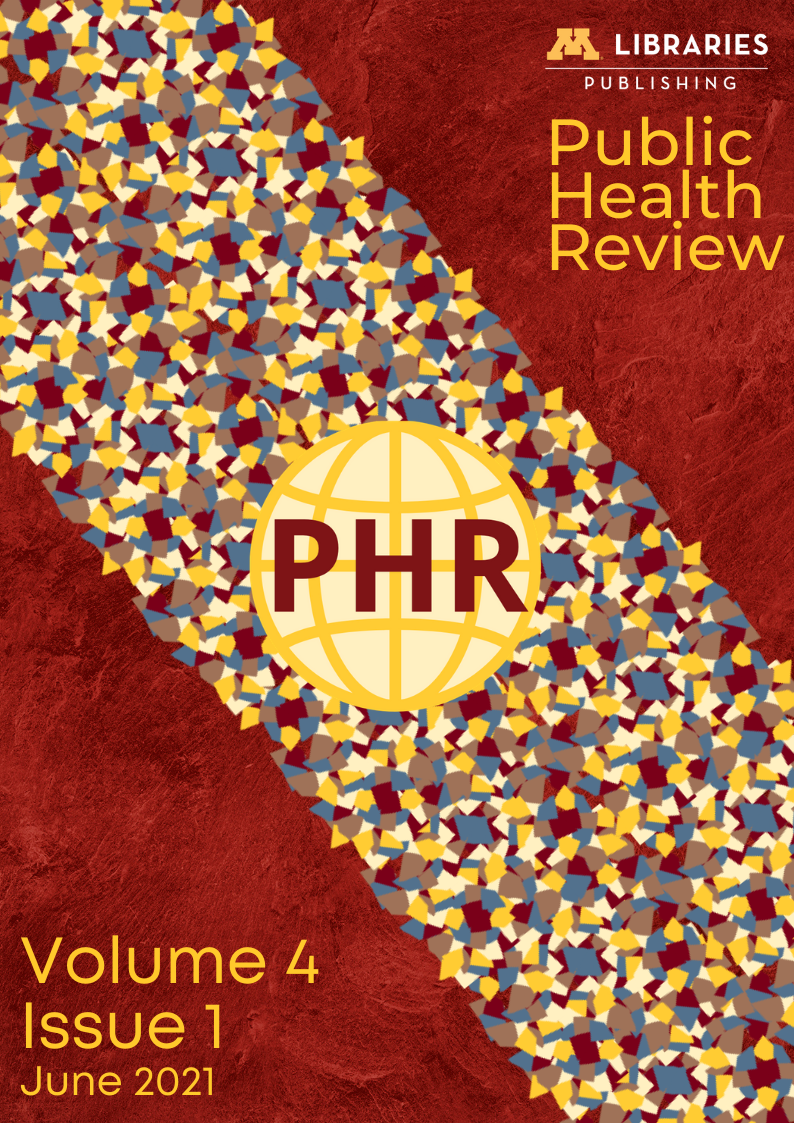Letter from the Executive Editor
Serena Xiong
Faiza Hassan
Abstract
Dear readers,
Take a long and deep breath… For many of us, it is the first time we can truly breathe since the beginning of the COVID-19 pandemic and the murder of George Floyd.
It is without a question that last year brought many challenges, but it also gave us an unintended reprieve to discover and reflect upon new solutions to tackle ongoing systemic crises, such as racism, gun violence, and the COVID-19 pandemic. It is with much excitement that our board’s June 2021 issue features research and analyses crossing the spectrum of “Public Health Preparedness and Response.” In this issue, you will find a study on a policy addressing gun violence, analyses underscoring the threat of antimicrobial resistance, and a look at the toll food deserts take on Hispanic communities.
As the new board of the Public Health Review (PHR), we focused on rebranding our journal with a new logo and revitalized social media accounts, in addition to launching new communication priorities for the year to expand our readership and public engagement with our journal and podcast, Perspectives. More than ever, researchers are recognizing the importance of incorporating an antiracist approach, and we aim to help elevate their work to a broad audience.
To complement this mission, we are currently in the process of developing several community-building strategies, which we are excited to implement in the latter half of this year. Through Perspectives, our podcast editors have highlighted the work of BIPOC public health leaders who are at the forefront of advancing health equity in Minnesota. We are also creating more transparency within and across our board. To that end, we are ecstatic to launch a new space where you, as readers, can hear us speak more directly to our values as an editorial board and share the knowledge that each board member brings. Our first piece comes from Section Editor, Faiza Hassan, regarding the abrupt change of the CDC mask mandate.
CDC Friend or Foe? : Reflections on the latest mask mandate
It is no secret the United States government did not handle the deadly pandemic well. Often, the Trump administration and political servants across the nation struggled to keep up with millions of Americans losing income, little support or PPE for frontline healthcare workers all the while COVID-19 ran rampant, crashing in wave after wave throughout every community. Yet, despite some missteps, the CDC—a trusted voice—worked hard to provide constant updates to scared Americans. It was a relief.
A year later, epidemiologists have learned more about the virus and a massive health care effort has rapidly provided not just one vaccine but several highly effective ones. As more and more individuals get vaccinated, the restrictions from last year are quickly lifting. The CDC says fully vaccinated individuals can remove their masks, and in many cases resume activities they engaged in prior to the pandemic. For individuals that have not been vaccinated yet, the leading U.S. public health agency recommends continuing to wear your mask in public and to schedule your vaccine appointment. This sounds easy enough to understand. However, it opens doors for misinformation, deliberate misunderstandings of the mask mandate, and leaves our vulnerable communities even more so.
Gaps in the new CDC mask mandate beg the question: Which Americans exactly is the CDC protecting? All of us? Or just communities that have the highest vaccination rates—typically, white communities with higher incomes. Most communities of color are still waiting to receive the vaccine, which the government often struggled to distribute equitably. In our nation's capital, 80% of recent COVID-19 cases now occur within the Black community in part due to issues with access.
Immunocompromised individuals and families with children still too young to receive a shot feel left out to dry with no clear guidance for them. Most importantly, this will make it harder to distinguish who has truly been vaccinated. The CDC guidelines require we place trust in individuals to be honest and help protect their community, where in many cases these are the same people who refused to abide by CDC precautions in the depth of the pandemic. Their actions were selfish, short-sighted, and did a disservice to the vulnerable communities as case rates increased. Ultimately, I fear these new guidelines will throw the country into confusion again. Vaccination rates may struggle to cross the necessary threshold and the pandemic will continue to simmer. After the past year, we cannot allow any more individuals to die in part due to the selfish behavior of others. In my humble opinion, the CDC has been irresponsible in how they communicated this mask mandate. And I'm not alone: The Washington Post and NPR report concerns from national nurses union to health equity researchers. Many in the medical community also share this sentiment; it has been an abrupt and rather jarring transition from strict restrictions toward this push back to normalcy. The CDC would do well to retract and revise their guidance.
Editor’s note: The opinions expressed in this piece are those of the author and do not necessarily reflect the views of the Public Health Review.
* * *
As you take this opportunity to breathe, we hope that reading and listening to these exciting public health research and initiatives at PHR might reinvigorate yourself and sustain your momentum in our collective fight against health inequities. Remember that at stressful times like these, where our collective thoughts and efforts are continuously demanded, we must pause and breathe.
Sincerely,
Serena Xiong
2021 Executive Editor, Public Health Review
Author Biographies
Serena Xiong
Executive Editor
Faiza Hassan
Section Editor



